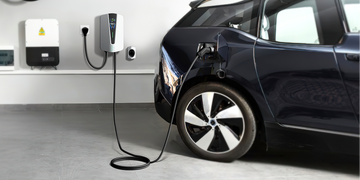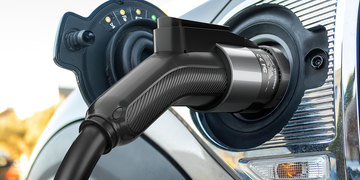As the automotive industry continues its shift towards sustainability, electric vehicles (EVs) have gained significant traction. One crucial aspect of the electric vehicle ecosystem is the charging infrastructure, with electric vehicle charging stations playing a pivotal role. If you're considering installing an electric vehicle charging station, one of the first questions that may come to mind is, "How much does an electric vehicle charging station cost?" In this article, we will explore the factors that influence the pricing of EV charging stations and provide insights into the overall costs.
If you're considering an electric vehicle versus a gas-powered vehicle, doing some upfront research on charging versus gas costs will help you make an informed decision. Keep in mind that many new electric cars offer some degree of free charging at public stations.
Factors Influencing Electric Vehicle Charging Station Prices
Charging Station Type:
Electric vehicle charging stations come in various types, each catering to different charging needs. Level 1 chargers, typically found in households, are the least expensive, while Level 2 chargers, commonly installed in public and commercial spaces, are priced higher. Fast DC chargers, capable of delivering a rapid charge, are the most expensive option due to their advanced technology.
Installation Costs:
The cost of installing an electric vehicle charging station depends on several factors, including the location, electrical infrastructure, and any necessary upgrades. Residential installations are generally less complex and more affordable than commercial installations, which may require additional considerations such as parking space layout and accessibility.
Power Capacity:
Charging stations with higher power capacities generally come with a higher price tag. The power capacity determines how quickly an electric vehicle can recharge. Stations with fast charging capabilities tend to cost more due to the advanced technology required to deliver a higher power output.
Networking and Smart Features:
Some electric vehicle charging stations come equipped with networking capabilities and smart features, allowing users to monitor and control charging remotely. While these features add convenience, they also contribute to the overall cost of the charging station.

How much does an electric vehicle charging station price?
You Need To Do Some Math
Don’t sweat it. The math involved is pretty simple. For the most accurate estimate, it helps to have a recent electric bill for reference. You’ll want to calculate the amount you pay for electricity in a given month. Then we’ll provide examples so you can determine how much you spend on each kilowatt-hour (kWh) of electricity used.
“For home charging, find your electric bill, then divide the [number] of kilowatt-hours you used into the bottom-line dollar total. That’ll give you the price you paid per kWh,” Voelcker explains.
According to the United States Energy Information Administration, the average U.S. household pays about 16 cents per kWh.
RELATED: Electric Cars 101: What You Need to Know About EVs
Let’s apply this rate to a typical electric car. This example does not take into consideration any discounts provided by your utility.
What Is the Cost to Charge an EV in kWh?
“A conservative rule of thumb is that an electric car gets 3 to 4 miles per kWh,” Voelcker says. “So divide the total miles you drive each month by 3 to get the kWh you would use monthly. Multiply that number by your cost per kWh. The dollar amount you get will most likely be lower than what you pay each month to buy gasoline.”
To put this into perspective, let’s give an example. Suppose you drive about 1,124 miles per month (Americans go an average of about 13,489 miles annually). For an EV, you will use about 375 kWh in that timeframe. Using the U.S. household average of about 16 cents per kWh, charging an electric car at home would cost nearly $60 per month.
How Does the Recharge Cost Compare to a Fuel Fill-Up?
Let’s say you’re driving a car that brings a combined average of 30 miles per gallon during a mix of city and highway driving. Using that same 12-gallon tank as a reference point, you’ll have 360 miles of driving range for each fill-up. If you’re driving the same 1,124 miles per month, you’ll need to refuel three times each month and spend about $129 ($43 x 3).
Again, this is only an estimate since fuel prices and mileage vary. But considering few cars and SUVs come close to delivering a 30 mpg combined average, our fairly conservative number-crunching in this scenario makes it clear that recharging will cost less than refueling a car. The financial gap narrows with a more fuel-efficient vehicle, but it remains.
How much does an electric vehicle charging station price? The cost of an electric vehicle charging station can vary widely based on several factors, including the type of charger, installation requirements, power capacity, features, and brand. It is essential to consider your specific needs, location, and budget when evaluating the options available. Additionally, exploring available government incentives can help make the transition to electric vehicles more economically viable.





